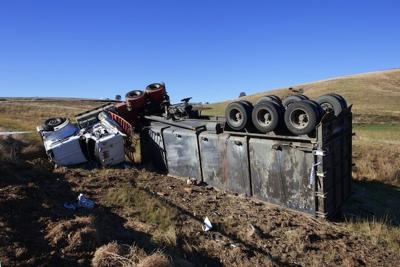Each year, there are hundreds of thousands of truck accidents. In 2020 alone, there were 415,000 police-reported truck crashes.
Unfortunately, many still need to be solved since determining liability poses a significant challenge in incidents involving multiple entities.
If you or someone you love has been in a truck accident, you know how complicated things can get.
This guide covers everything you need to know about truck accident contributing factors—and why determining liability is often challenging.
There Are Often Many Entities Involved in a Truck Accident
The first and most significant factor in determining liability is the number of people and entities involved.
It is relatively easy to determine who is at fault for a truck accident. However, it is tricky with many entities responsible for various aspects of truck safety.
Potential actors in a truck accident include:
The truck driver
Any other drivers involved in the accident or subsequent damages.
The truck manufacturer
The cargo company
The driver’s employer
The maintenance workers for the truck
The truck driver’s doctor or medical professional
The drug and alcohol testing company for the driver
Any one of these individuals could be responsible for the truck accident. For example, if the manufacturer sold a defective part, a liability case would likely involve them. Alternatively, if the truck driver received a clear doctor’s note but had poor eyesight or an underlying illness, their doctor would probably be held responsible.
Proving Liability is Very Difficult
After a truck accident, the police and entities involved must work together to determine liability. Although they may identify the possible cause of the accident, proving that this was the cause is a different story—and often significantly more complicated.
The legal process is complicated because investigators must identify the cause and eliminate other causes and contributors.
To do so, they must first conduct a truck accident scene investigation.
Then, investigators must assess the employer’s records to ensure a clean background check on the driver and a positive bill of health. They must also evaluate the driver’s drug and alcohol screenings, log book, and employment history.
If multiple issues are involved in the accident, proving liability becomes even more complicated since numerous parties may be responsible.
Determining Negligence is Even Harder
Determining liability often hinges on identifying the negligent party.
However, negligence is a notoriously vague legal term that describes irresponsible behavior. It is challenging to prove that someone had acted irresponsibly, mainly when there was no malicious intent or immediately apparent cause of the accident.
For example, it is difficult to prove that a truck driver drove past the physical limit of exhaustion or that a third-party driver needed to be more careful in merging into a lane.
Proving Mechanical Failure is Also Difficult
Often, a mechanical failure causes a truck accident.
However, investigators may need help identifying the part that has failed. Although commercial trucks have maintenance records and black boxes, maintenance and repair issues can be hard to determine—and even harder to trace back to the source of the problem.
For example, if multiple mechanics have recently worked on the truck, which is relatively common, investigators may need help in accurately finding out one individual responsible for the accident.
Regulations Governing Truck Safety Are Complicated
The Federal Motor Carrier Safety Regulations (FMCSRs) are federal laws that determine where, when, and how truck drivers can safely navigate roads.
Hundreds of laws and regulations impact truck operations and accidents, which can further introduce complexity into an investigation.
To add to the confusion, differences across state laws can affect the case. The process can become even more convoluted if any parties involved need to become more familiar with state laws.
To that end, it’s essential to enlist the help of a legal expert who understands the specific laws that govern trucks.
Wrapping Up
Determining liability in the event of a truck accident is a difficult task.
The process is often long and requires extensive cooperation from all parties involved. If you’ve been involved in a truck accident, use this guide to navigate the complexities of your case.
Other articles related to your search
What Are the Most Dangerous Types of Car Accidents?
7 Steps To Take After A Motorcycle Accident
As A Truck Driver, You Face Many Dangers: Here's How To Deal With Them



(0) comments
We welcome your comments
Log In
Post a comment as Guest
Keep it Clean. Please avoid obscene, vulgar, lewd, racist or sexually-oriented language.
PLEASE TURN OFF YOUR CAPS LOCK.
Don't Threaten. Threats of harming another person will not be tolerated.
Be Truthful. Don't knowingly lie about anyone or anything.
Be Nice. No racism, sexism or any sort of -ism that is degrading to another person.
Be Proactive. Use the 'Report' link on each comment to let us know of abusive posts.
Share with Us. We'd love to hear eyewitness accounts, the history behind an article.